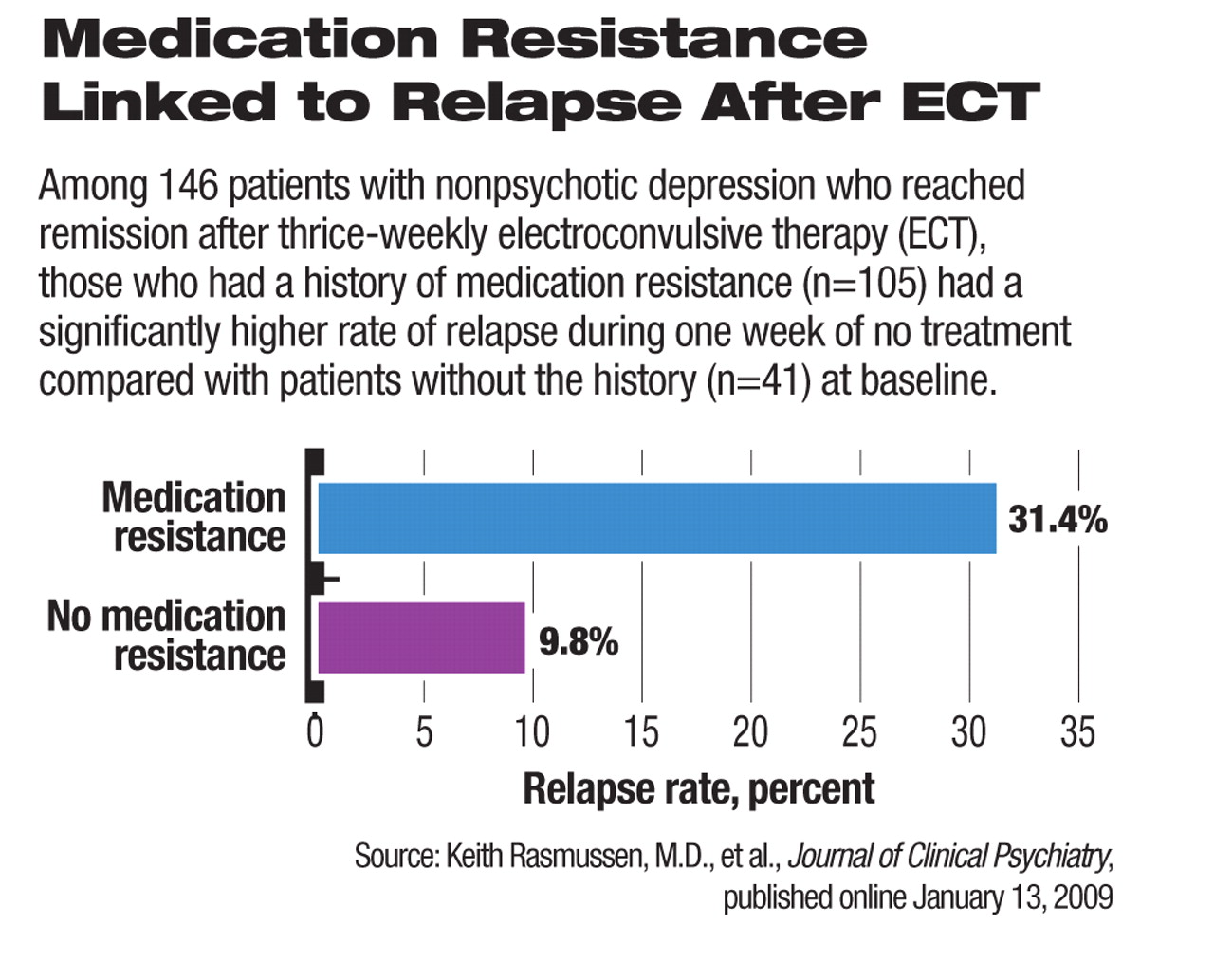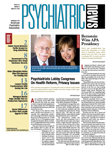Electroconvulsive therapy (ECT) is usually reserved for difficult-to-treat depression patients who are not suitable for or have failed to respond to antidepressant medications. However, patients who have failed at least one adequate course of medication have a 1 in 3 chance of relapse within a week after responding to ECT.
A study published online in the Journal of Clinical Psychiatry on January 13 presented new data analyses from a large multicenter clinical trial on the long-term effectiveness of ECT conducted from 1997 to 2004. The trial was conducted by the Consortium for Research on Electroconvulsive Therapy (CORE), a group of medical centers across the country that have been collaborating on clinical research to investigate ECT effectiveness and relapse prevention in the real-world patient-care setting.
In the clinical trial, 531 patients with unipolar depression received ECT three times a week until they either reached remission or completed 10 ECT sessions without remission. Patients were assessed at baseline and after each ECT session.
The criterion for remission was achieving a 60 percent reduction from baseline in the 24-item Hamilton Rating Scale for Depression (HAM-D24) score and two consecutive assessments in which the scores were no more than 10, with no more than a three-point drop between the two assessments to ensure the response was stable. At baseline each patient was questioned about past treatment to determine whether he or she had had a previous trial of antidepressant treatment with adequate dosage and duration.
The 341 patients who achieved remission waited for one week before they were randomized to the long-term phase of the trial, which compared the effectiveness of maintenance ECT with that of pharmacotherapy. This study examined only the subsample of 146 patients who reached remission within 10 sessions, had no psychotic features, and provided treatment history at baseline.
During the one-week interim period when patients in remission had no treatment for depression, nearly a third (31.4 percent) of the 105 nonpsychotic patients with a history of medication resistance relapsed, meaning that their HAM-D24 score rose back above 10. This relapse rate was significantly higher than the 9.8 percent rate in the 41 patients who did not have a history of medication resistance.
The study findings suggested “the fragile nature of ECT-induced remissions in previously medication-resistant patients,” the researchers concluded.
At the end of the interim week, 73 patients who were still in remission were randomized to receive either pharmacotherapy or maintenance ECT for the next six months. About 48 percent of these patients relapsed during the six-month period, 40 percent did not relapse, and the remainder dropped out of the study.
By the end of the six-month maintenance period, 53 percent of patients with a history of medication resistance and 38 percent of patients without such a history relapsed despite treatment. This difference, however, was not statistically significant.
Keith Rasmussen, M.D., a psychiatrist in the Department of Psychiatry and Psychology at the Mayo Clinic and the lead author of the study, recommended that psychiatrists should not “be dissuaded from doing ECT in a patient who is medication refractory, but [should] be aggressive in planning the treatment-continuation strategies.”
These strategies, he noted, “would include starting medications immediately after the end of ECT and possibly before it,” he told Psychiatric News.
The study was funded by grants from the National Institute of Mental Health.
An abstract of “Is Baseline Medication Resistance Associated With Potential for Relapse After Successful Remission of a Depressive Episode With ECT? Data From the Consortium for Research on Electroconvulsive Therapy (CORE)” is posted at<www.psychiatrist.com/abstracts/abstracts.asp?abstract=oap/ej08m04092.htm>.▪

